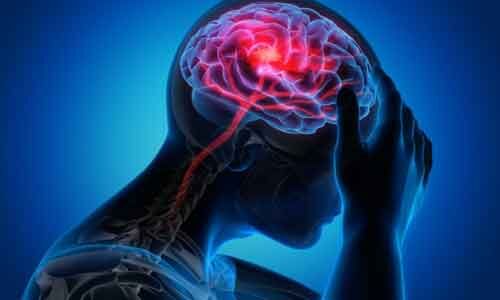- Home
- Medical news & Guidelines
- Anesthesiology
- Cardiology and CTVS
- Critical Care
- Dentistry
- Dermatology
- Diabetes and Endocrinology
- ENT
- Gastroenterology
- Medicine
- Nephrology
- Neurology
- Obstretics-Gynaecology
- Oncology
- Ophthalmology
- Orthopaedics
- Pediatrics-Neonatology
- Psychiatry
- Pulmonology
- Radiology
- Surgery
- Urology
- Laboratory Medicine
- Diet
- Nursing
- Paramedical
- Physiotherapy
- Health news
- Fact Check
- Bone Health Fact Check
- Brain Health Fact Check
- Cancer Related Fact Check
- Child Care Fact Check
- Dental and oral health fact check
- Diabetes and metabolic health fact check
- Diet and Nutrition Fact Check
- Eye and ENT Care Fact Check
- Fitness fact check
- Gut health fact check
- Heart health fact check
- Kidney health fact check
- Medical education fact check
- Men's health fact check
- Respiratory fact check
- Skin and hair care fact check
- Vaccine and Immunization fact check
- Women's health fact check
- AYUSH
- State News
- Andaman and Nicobar Islands
- Andhra Pradesh
- Arunachal Pradesh
- Assam
- Bihar
- Chandigarh
- Chattisgarh
- Dadra and Nagar Haveli
- Daman and Diu
- Delhi
- Goa
- Gujarat
- Haryana
- Himachal Pradesh
- Jammu & Kashmir
- Jharkhand
- Karnataka
- Kerala
- Ladakh
- Lakshadweep
- Madhya Pradesh
- Maharashtra
- Manipur
- Meghalaya
- Mizoram
- Nagaland
- Odisha
- Puducherry
- Punjab
- Rajasthan
- Sikkim
- Tamil Nadu
- Telangana
- Tripura
- Uttar Pradesh
- Uttrakhand
- West Bengal
- Medical Education
- Industry
GON block with bupivacaine not superior to metoclopramide for migraine treatment: Study

USA: Greater occipital nerve blocks (GONB) with bupivacaine is not effective as IV metoclopramide for the first-line migraine treatment in the emergency department (ED), suggests a recent study in the journal Headache.
GONB are increasingly been used for the treatment of acute migraine. Benjamin W. Friedman, Albert Einstein College of Medicine, Montefiore, Bronx, NY, USA, and colleagues conducted a double‐dummy, double‐blind, parallel‐arm, non‐inferiority randomized controlled trial in 2 EDs to determine whether GONB was as effective as intravenous metoclopramide for migraine.
The researchers screened 1358 patients for participation, of those 99 were included. 99 patients with migraine of moderate or severe intensity were randomized to receive bilateral GONB with each side administered 3 mL of bupivacaine 0.5% (n=51) or metoclopramide 10 mg IV (n=48), the putative standard of care. They were followed for over a 2.5‐year of the study period.
The primary outcome was improvement in pain on a 0‐10 scale between time 0 and 1 hour later. Secondary outcomes included sustained headache relief, defined as achieving and maintaining for 48 hours a headache level of mild or none without the use of additional analgesic medication, and the use of rescue medication in the ED.
Key findings of the study include:
- Patients who received the GONB reported mean improvement of 5.0 while those who received metoclopramide reported a larger mean improvement of 6.1.
- The 95% CI for the between group difference of −1.1 was −2.3, 0.1.
- Sustained headache relief was reported by 22% of GONB and 38% of metoclopramide patients.
- Of the 51 GONB patients 33% required rescue medication in the ED vs 17% metoclopramide patients.
- An adverse event was reported by 31% of GONB patients and 38% metoclopramide patients.
Based on the findings the authors concluded that GONB with bupivacaine was not as efficacious as IV metoclopramide for the first‐line treatment of migraine in the ED.
"A Randomized, Double‐Dummy, Emergency Department‐Based Study of Greater Occipital Nerve Block With Bupivacaine vs Intravenous Metoclopramide for Treatment of Migraine," is published in the journal Headache.
DOI: https://headachejournal.onlinelibrary.wiley.com/doi/abs/10.1111/head.13961
Dr Kamal Kant Kohli-MBBS, DTCD- a chest specialist with more than 30 years of practice and a flair for writing clinical articles, Dr Kamal Kant Kohli joined Medical Dialogues as a Chief Editor of Medical News. Besides writing articles, as an editor, he proofreads and verifies all the medical content published on Medical Dialogues including those coming from journals, studies,medical conferences,guidelines etc. Email: drkohli@medicaldialogues.in. Contact no. 011-43720751


